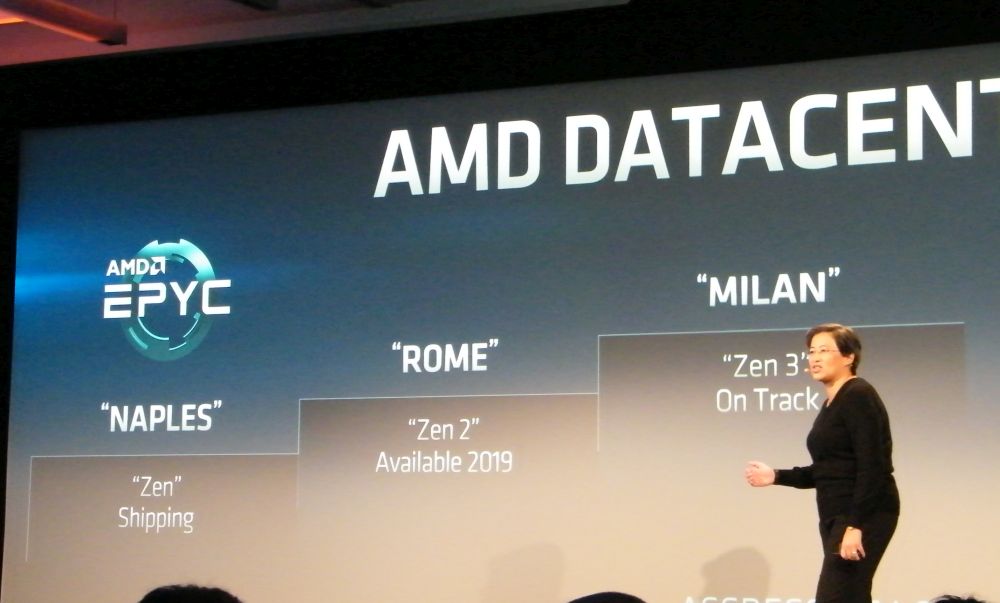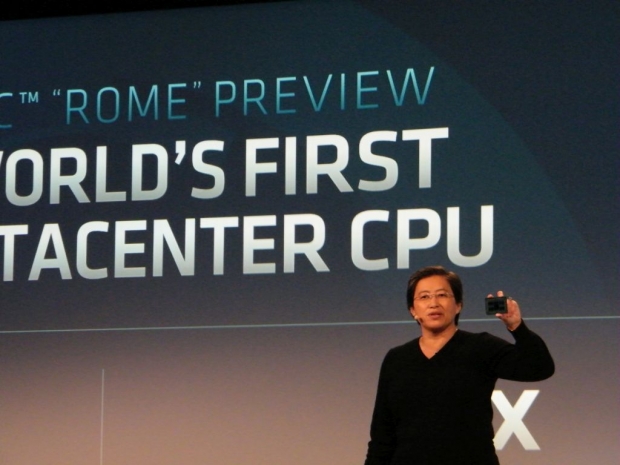At the special AMD "The Next Horizon“ event, AMD confirmed its total commitment to the datacenter market, unveiling both the new 7nm Vega-based Instinct MI60 as well as showing some of the first details and performance figures for the upcoming 7nm EPYC "Rome“ datacenter CPU.
AMD also talked about Zen 2 CPU core and modular design methodology with the so-called chiplet design but we will cover that one in a separate article.
According to revealed specifications, the 7nm EPYC Rome datacenter CPU will pack up to 64 Zen 2 cores with 128-threads, offer increased instructions-per-cycle, as well as bring leadership in compute, I/O, and memory bandwidth. AMD claims.
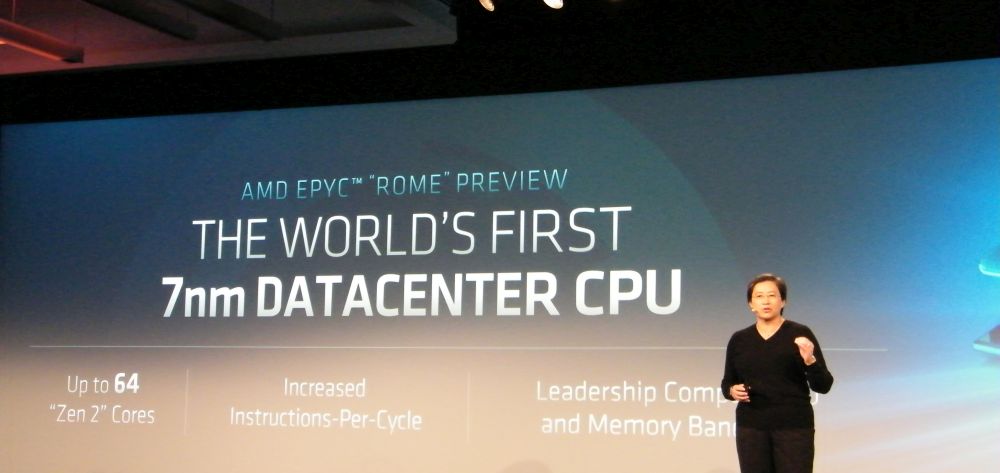
While the company still did not reveal any specific clock details, due to the fact that the CPU is still in the prototype phase, it did reveal some specific details, like the fact that this is the first PCIe 4.0 capable x86 server CPU, which both brings double the bandwidth/channel, as well as dramatically improves accelerator performance on the entire platform.
Performance wise, EPYC Rome will bring 2x the performance per socket and 4x floating point per socket improvements, compared to the previous generation.
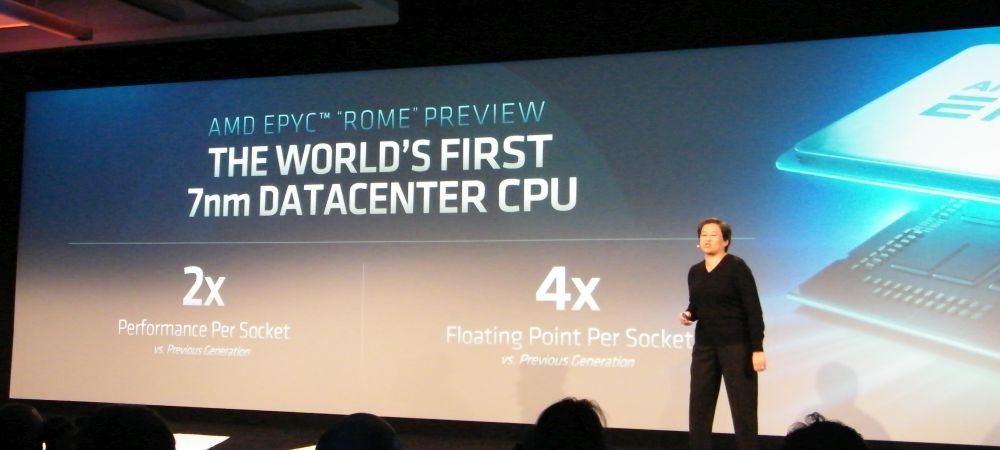
AMD did not stop there, but also showed a live demo of a prototype single socket AMD EPYC Rome, which has support for up to 4TB of DRAM and offers 128-lanes of PCIe 4.0, against Intel's "best-in-class“ Skylake dual-socket platform with two Intel 8180M Platinum CPUs , with support for up to 3TB of DRAM and offering 96 PCIe 3.0 lanes.
In a head-to-head performance preview, AMD's single-socket EPYC Rome not only managed to match but actually be faster than Intel's dual-socket platform, showing the potential of a 7nm EPYC Rome CPU based on Zen 2 architecture.
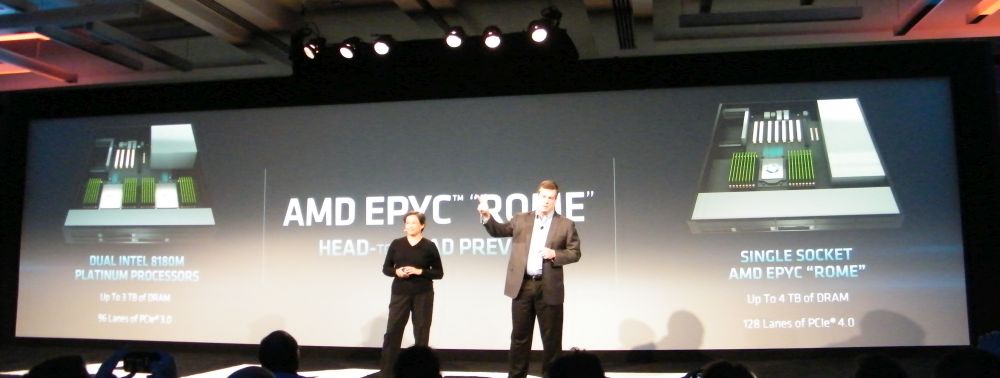
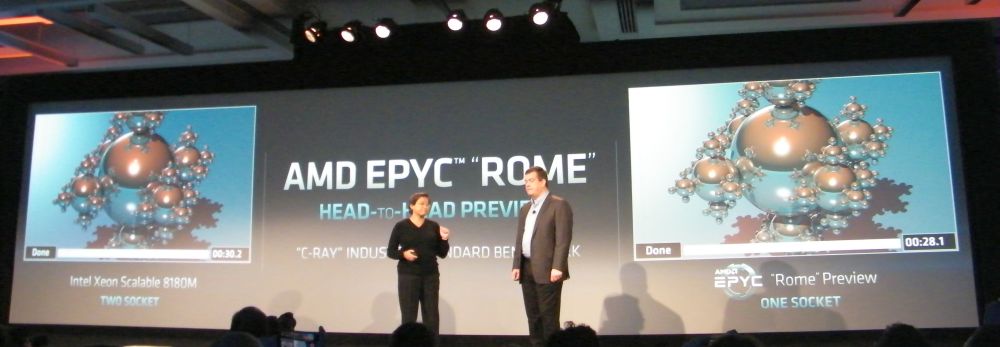
AMD was also keen to note that EPYC Rome will be both socket compatible with the existing Naples platform, as well as forward compatible with the next-generation Milan platforms, putting a big focus on upgradability.
AMD was also focused on providing a stable roadmap revealing that Zen 2 EPYC Rome is sampling now, with availability expected in 2019, while Zen 3 Milan is on track and should come sometime in 2020.
